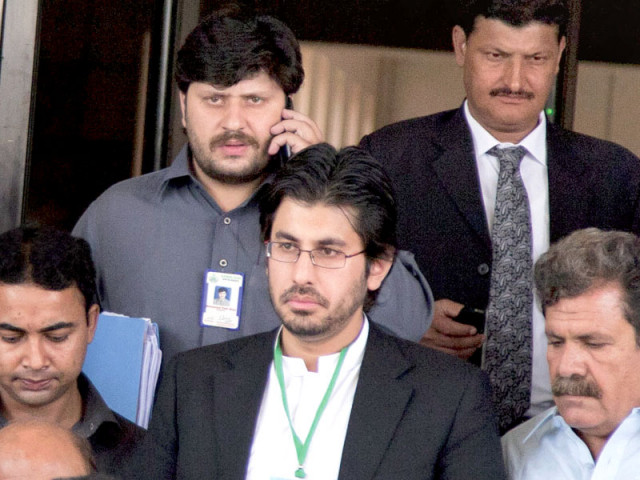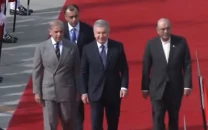Bahria Town scandal: SC reserves ruling in Arsalan’s case
Bench adjourns hearing of review petition for an indefinite period.

Bahria Town scandal: SC reserves ruling in Arsalan’s case
The Supreme Court (SC) on Tuesday reserved its judgment on Chief Justice Iftikhar Muhammad Chaudhry’s son Arsalan Iftikhar’s review petition challenging its June 14 order relating to allegations of a business deal between him and real estate tycoon Malik Riaz.
The ruling had empowered the attorney general to act in accordance with the law and bring all culprits to the book. The bench adjourned the case for an indefinite period.
After SC’s verdict, Attorney General Irfan Qadir had referred the matter to National Accountability Bureau (NAB) Chairman Fasih Bukhari, who had constituted a five-member joint investigation team (JIT) to probe the alleged business deal between Arsalan and Malik Riaz through the latter’s son-in-law Salman Ali Khan.
Following Arsalan’s objections on the JIT members, NAB Chairman Bukhari had dissolved the team and decided to probe the matter himself.
However, Arsalan took the matter back to the court, arguing that AG Qadir did not act in accordance with the court’s verdict and referred the matter to NAB with mala fide intention, since he was biased against CJ Chaudhry. His second grievance was over NAB Chairman Bukhari’s daughter being an employee of Malik Riaz, who enjoyed a close relationship with Bukhari.
Arguing the case before a division bench headed by Justice Jawad S Khawaja, Arsalan’s counsel Advocate Sardar Muhammad Ishaq Khan on Tuesday requested the court to assign the investigation of the case to a reputable bureaucrat or a judge for transparency. According to Ishaq, the government accepted Bukhari’s resignation, before he took over the matter. Therefore he argued he could not maintain impartiality in the case.
Challenging Bukhari’s impartiality, Ishaq also contended that his daughter had been an employee of Malik Riaz in Bahria Town, hence both enjoyed a close relationship, and thus his client had no faith in the probe carried out by NAB.
Responding to the remarks, NAB prosecutor Akber Tarad objected and requested that she should not be discussed in the court. “Whatever matter came before us was involving someone’s daughter or son,” remarked Justice Khawaja.
Ishaq Khan argued that Malik Riaz had a powerful clout in the Islamabad police, and therefore the capital’s police always protected him and resisted to carry out raids against him. Declaring the objections of Ishaq as irrelevant, Justice Khawaja asked “If you do not trust anyone, should the court then call someone from abroad?”
Refuting Ishaq Khan’s argument, Malik Riaz’s counsel Zahid Bukhari said the matter was being politicised because he enjoyed a close relationship with the Punjab government, which was using the anti-corruption department against his client, and Ishaq wanted the department to be assigned the investigation into the case.
Published in The Express Tribune, August 29th, 2012.



















COMMENTS
Comments are moderated and generally will be posted if they are on-topic and not abusive.
For more information, please see our Comments FAQ